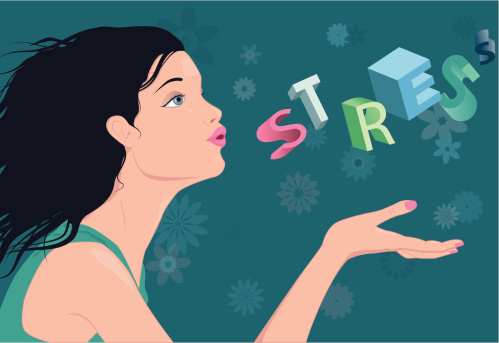Stress and anxiety are common problems that many people face in their daily lives. Whether it’s work-related stress, family problems, or financial worries, stress and anxiety can have a negative impact on your mental and physical health. In this article, we will discuss some tips for reducing stress and anxiety in your daily life.
1. Practice Mindfulness
Mindfulness is a practice that involves focusing on the present moment without judgment. It can help you reduce stress and anxiety by allowing you to be more aware of your thoughts and emotions. You can practice mindfulness by taking a few minutes each day to focus on your breathing, observe your thoughts without judgment, and connect with the present moment.
2. Exercise Regularly
Exercise is a great way to reduce stress and anxiety. It releases endorphins, which are natural mood-boosters, and can help you relax and feel more energized. You don’t need to hit the gym to reap the benefits of exercise; even a short walk or a few minutes of stretching can be beneficial.
3. Get Enough Sleep
Lack of sleep can increase stress and anxiety levels, so it’s important to make sure you’re getting enough rest. Aim for 7-8 hours of sleep each night and establish a regular sleep routine. Avoid screens before bed, keep your bedroom cool and quiet, and try to go to bed and wake up at the same time each day.
4. Eat a Balanced Diet
Eating a balanced diet can help reduce stress and anxiety. Avoid processed and sugary foods, which can contribute to feelings of anxiety, and instead focus on whole foods like fruits, vegetables, lean protein, and whole grains. Eating a balanced diet can help regulate your blood sugar levels and give you the energy you need to tackle your day.
5. Connect with Others
Connecting with others can help reduce stress and anxiety. Spend time with friends and family, join a club or organization, or volunteer in your community. Having a support system can help you cope with stress and give you a sense of belonging and purpose.
6. Practice Self-Care
Self-care is important for reducing stress and anxiety. Take time each day to do something that makes you feel good, whether it’s reading a book, taking a bath, or practicing a hobby. It’s also important to set boundaries and say no to things that you don’t have the time or energy for.
7. Seek Professional Help
If you’re experiencing severe or chronic stress and anxiety, it may be time to seek professional help. A mental health professional can help you develop coping strategies and provide you with the support and guidance you need to manage your stress and anxiety.
In conclusion, stress and anxiety are common problems that can have a negative impact on your mental and physical health. By practicing mindfulness, exercising regularly, getting enough sleep, eating a balanced diet, connecting with others, practicing self-care, and seeking professional help when necessary, you can reduce stress and anxiety in your daily life and improve your overall well-being. Remember that taking care of yourself is important, and small changes can make a big difference.

